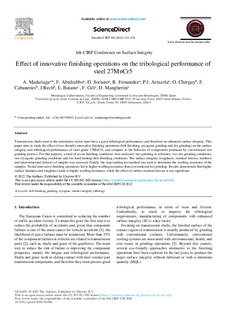| dc.rights.license | Attribution-NonCommercial-NoDerivatives 4.0 International | * |
| dc.contributor.author | Madariaga, Aitor | |
| dc.contributor.author | Abedrabbo Hazbun, Anibal Faruk | |
| dc.contributor.author | Soriano Moreno, Denis | |
| dc.contributor.author | Alpizar Fernandez, Raul | |
| dc.contributor.author | ARRAZOLA, PEDRO JOSE | |
| dc.contributor.other | Cherguy, O. | |
| dc.contributor.other | Cabanettes, F. | |
| dc.contributor.other | Rech, Jöel | |
| dc.contributor.other | Butano, Eva | |
| dc.contributor.other | Gili, Flavia | |
| dc.contributor.other | Mangherini, D. | |
| dc.date.accessioned | 2022-06-16T13:10:32Z | |
| dc.date.available | 2022-06-16T13:10:32Z | |
| dc.date.issued | 2022 | |
| dc.identifier.issn | 2212-8271 | en |
| dc.identifier.other | https://katalogoa.mondragon.edu/janium-bin/janium_login_opac.pl?find&ficha_no=167887 | en |
| dc.identifier.uri | https://hdl.handle.net/20.500.11984/5608 | |
| dc.description.abstract | Transmission shafts used in the automotive sector must have a good tribological performance, and therefore an enhanced surface integrity. This paper aims to study the effect of eco-friendly innovative finishing operations (belt finishing, cryogenic grinding and dry grinding) on the surface integrity and tribological performance of steel grade 27MnCr5, and compare to the behavior of components produced by conventional wet grinding process. For that purpose, a total of seven finishing conditions were analysed: wet grinding as reference, two dry grinding conditions, two cryogenic grinding conditions and two hard turning+belt finishing conditions. The surface integrity (roughness, residual stresses, hardness and microstructural defects) of samples was assessed. Finally, the step-loading test method was used to determine the scuffing resistance of the samples. Tested innovative finishing operations led to higher scuffing resistance than conventional wet grinding. Results demonstrate that higher surface hardness and roughness leads to higher scuffing resistance, while the effect of surface residual stresses is not significant. | en |
| dc.description.sponsorship | Comisión Europea | es |
| dc.description.sponsorship | Gobierno Vasco | es |
| dc.language.iso | eng | en |
| dc.publisher | Elsevier Ltd. | en |
| dc.rights | © 2022 The Authors. Published by Elsevier B.V. | en |
| dc.rights.uri | http://creativecommons.org/licenses/by-nc-nd/4.0/ | * |
| dc.subject | belt finishing | en |
| dc.subject | Grinding | en |
| dc.subject | Cryogenic | en |
| dc.subject | Surface Integrity | en |
| dc.subject | Tribology | en |
| dc.title | Effect of innovative finishing operations on the tribological performance of steel 27MnCr5 | en |
| dcterms.accessRights | http://purl.org/coar/access_right/c_abf2 | en |
| dcterms.source | Procedia CIRP | en |
| local.contributor.group | Mecanizado de alto rendimiento | es |
| local.description.peerreviewed | true | en |
| local.description.publicationfirstpage | 513 | en |
| local.description.publicationlastpage | 518 | en |
| local.identifier.doi | https://doi.org/10.1016/j.procir.2022.03.080 | en |
| local.relation.projectID | nfo:eu-repo/grantAgreement/EC/RFCS/RFCS-2018-847284/EU/Improvement of the fatigue performance of automotive components through innovative ecofriendly finishing operations/FATECO | en |
| local.relation.projectID | info:eu-repo/grantAgreement/GV/Convocatoria Universidad Empresa 2021-2022/PUE2021_1_0010/CAPV/Desarrollo de un proceso de rectificado verde mediante el uso de la refrigeración criogénica como sustituta de los aceites de corte y sus emulsiones/CRIOGRIND | en |
| local.contributor.otherinstitution | https://ror.org/01rk35k63 | es |
| local.contributor.otherinstitution | https://ror.org/00b7dkt53 | es |
| local.source.details | Vol. 108. Pp. 513-518, 2022 | en |
| oaire.format.mimetype | application/pdf | |
| oaire.file | $DSPACE\assetstore | |
| oaire.resourceType | http://purl.org/coar/resource_type/c_c94f | en |
| oaire.version | http://purl.org/coar/version/c_970fb48d4fbd8a85 | en |








